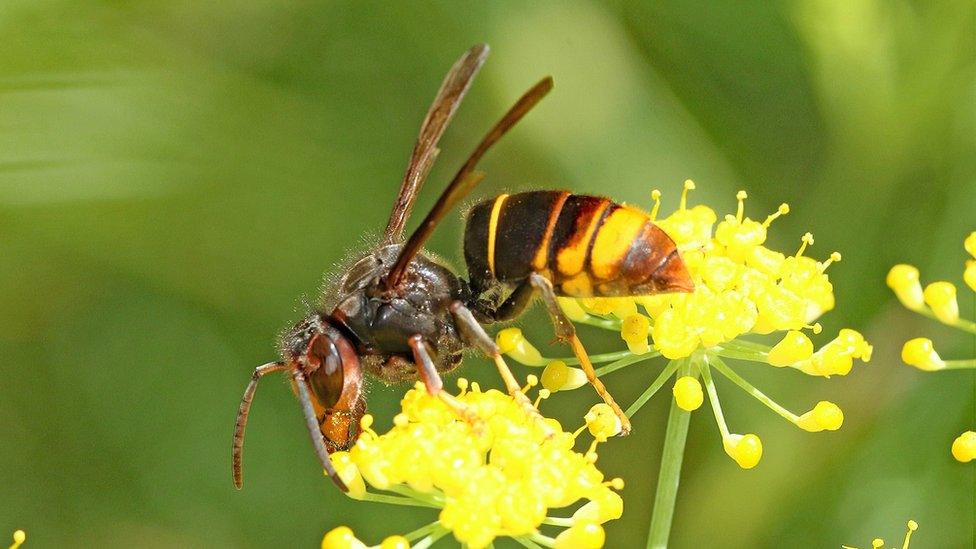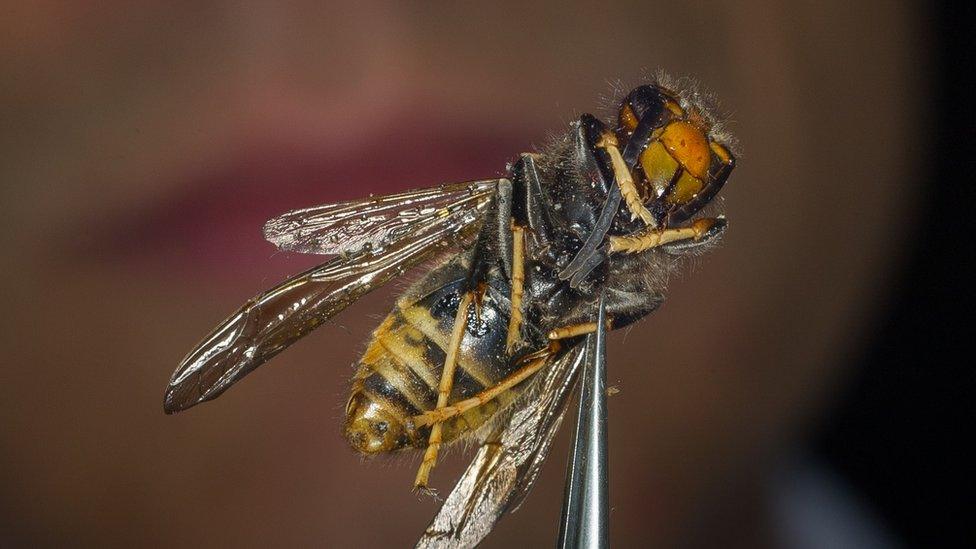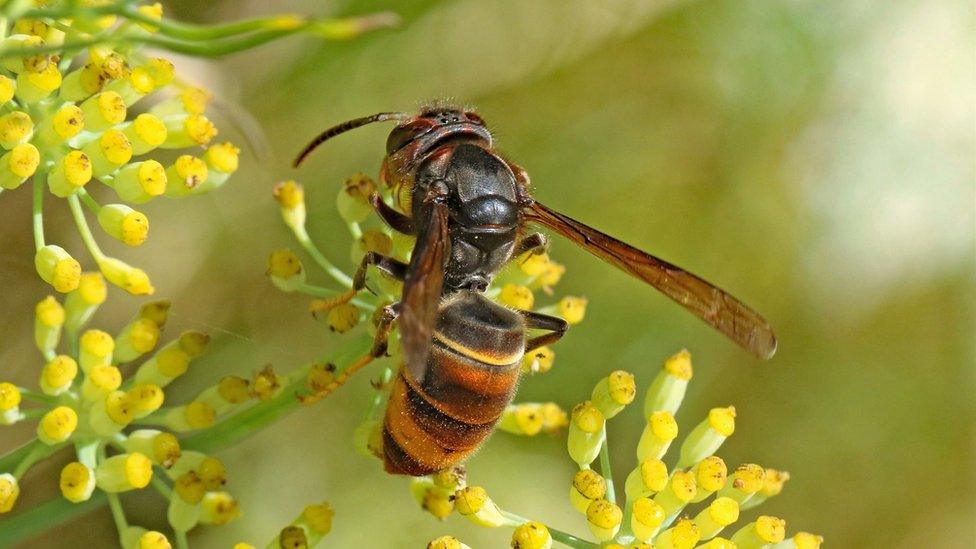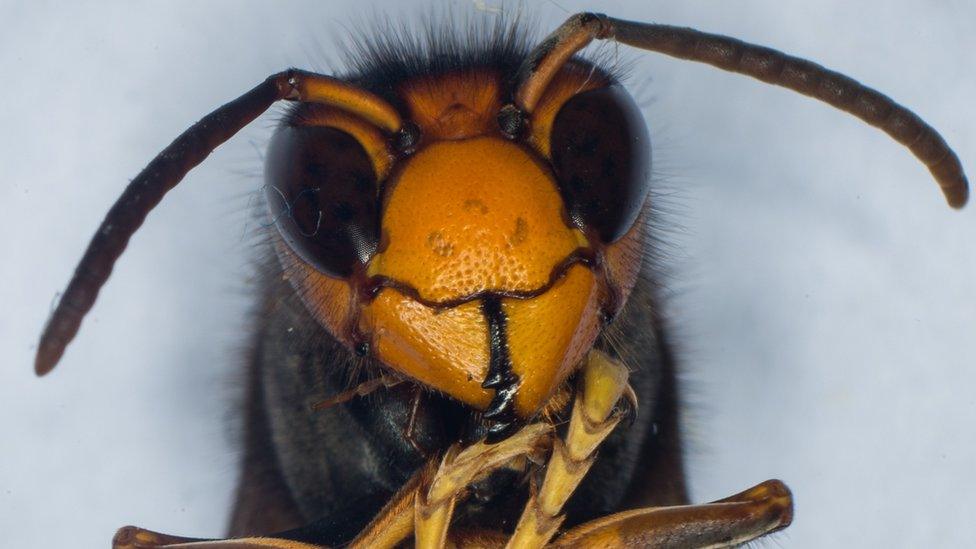Asian Hornet spotted in Jersey for first time
- Published

An amateur insect expert photographed the Asian Hornet in Jersey
A hornet which can kill up to 50 bees a day has been spotted in Jersey for the first time, a month after a nest was discovered on a neighbouring island.
The Asian Hornet has spread across Europe since being accidentally introduced to France in 2004 in a shipment of pottery from China.
The UK's National Bee Unit confirmed one of the hornets had been photographed in Jersey.
Beekeeper Bob Hogge said he expected more to arrive on the island.
Mr Hogge, from the Jersey Beekeepers' Association, said: "I think I could put a very safe bet that we will have them here within the next few years.
"They surround us now, they're on the Brittany coast, they're on the Normandy coast - we will get them", he said.

The Asian hornet is slightly smaller than the native European hornet
A nest of Asian Hornets found in Alderney in July was destroyed as a precaution against them spreading, the Alderney government said.
In Jersey, an amateur insect expert who photographed it at Mount Bingham, Jersey's environment department said.
The department said the area had been searched and no further hornet activity detected.
Dismember bees
People who suspect they have found a hornet should send a photograph to the department if it is safe to do so, a spokesman said.
Mr Hogge said the Asian Hornet dismembered honey bees to take back to feed their young and could wipe out entire hives.
"They've got a particularly unpleasant sting, and they are aggressive. If one attacks you and leaves a sting it will leave a scent and others will come and attack you too," he added.
However, the department stressed the Asian hornet was no more harmful to humans than the European hornet.

The UK's National Bee Unit has confirmed the creature photographed at Mount Bingham in Jersey was an Asian Hornet

Identifying an Asian hornet
Vespa velutina queens are up to 3cm (1.2in) in length; workers up to 25mm (1in)
Entirely dark brown or black velvety body, bordered with a fine yellow band
Only one band on the abdomen: 4th abdominal segment almost entirely yellow/orange
Legs brown with yellow ends
Head black with an orange-yellow face
Source: National Bee Unit

- Published21 May 2016
